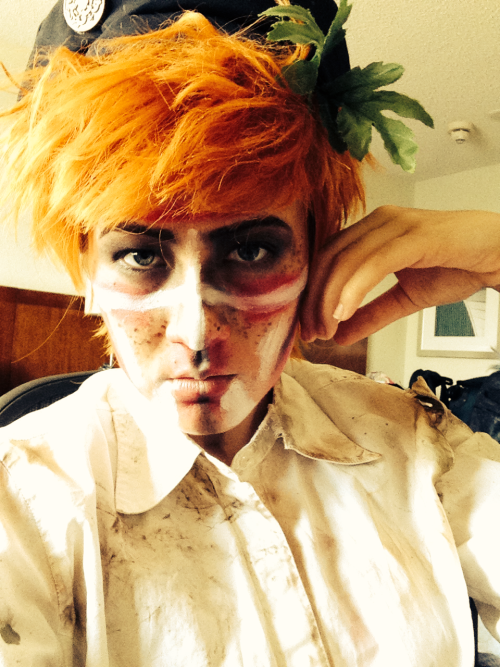It's almost that time of year again.
That time when SCBWI members will be scratching their heads about What to Wear at the annual mass book launch party. Well, fear not. Here's a fail-safe list of 12 book character costume ideas that will delight, amaze and stun your writerly friends:
#1 The Wardrobe (CS Lewis)
Pros: Easy to get hold of a cardboard box.
Cons: Might not be able to get into the taxi.
#2 Mockingjay pin (Suzanne Collins)
Pros: Can wear normal clothes underneath.
Cons: Might accidentally spike someone.
#3 Cruella Deville (Dodie Smith)
Pros: That two-toned hair is instantly recognisable. No one will ask who you're meant to be.
Cons: Freaking terrifying.
#4 Mr Twit (Roald Dahl)
Pros: Easy. Just add cornflakes.
Cons: Might put people off their Prosecco.
#5 Princess and the Pea (Brothers Grimm)
Pros: Very ap-pea-ling costume.
Cons: Trying way too hard.
#6 Cleo (Lucy Coats)
Pros: Just need to dig out that liquid eyeliner...
Cons: Bare-armed Egyptian look might be chilly for November.
#7 Zombie Goldfish (Mo O' Hara)
Pros: Cardboard box time again.
Cons: Maybe not so cute on an adult?
#8 Other Mother (Neil Gaiman)
Pros: Just need two black buttons.
Cons: See #3.
#9 The Boy in the Dress (David Walliams)
Pros: Can go glam and enjoy looking down on all those sporting cardboard boxes.
Cons: David Walliams gets *way* too much press on World Book Day (lessons to be learnt from his character branding, folks)
#10 The Peach (Roald Dahl again)
Pros: Totally peachy for pregnant peeps.
Cons: A bit...wrong?
#11 Moaning Myrtle (JK Rowling)
Pros: I know it's more cardboard, but easy peasy costume, n'est-ce pas?
Cons: Do you really want to be in school uniform all evening?
#12 War Horse
Pros: Hahahahahahahaha!
Cons: There are literally no cons to this. It's brilliant.
And there you have it: 12 fail-safe ways to wow your fellow guests at any book character inspired costume event.
My job is done.
#costume #worldbookday #bookcharacters #fancydress #scbwi
































